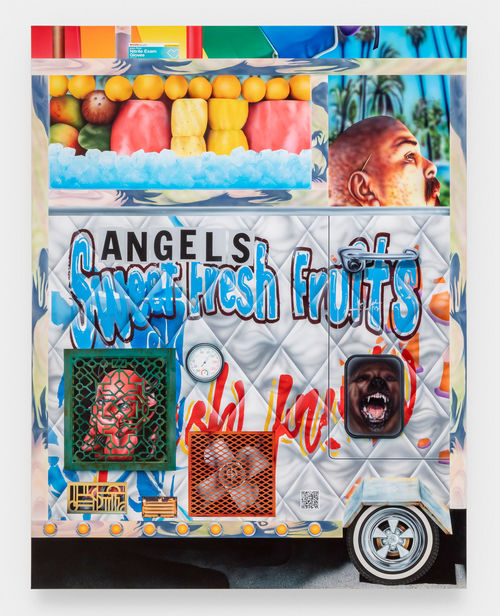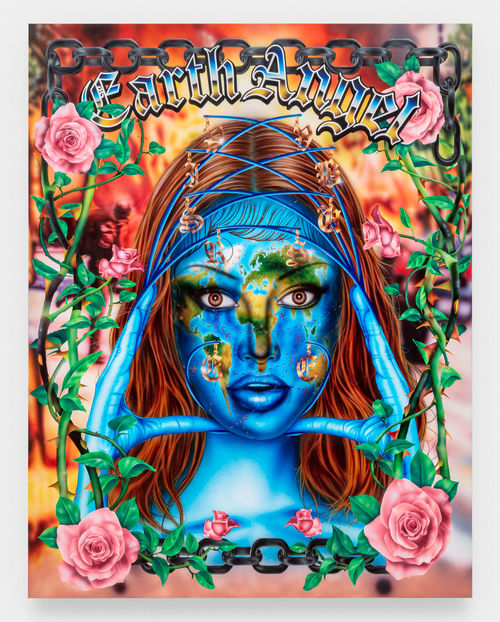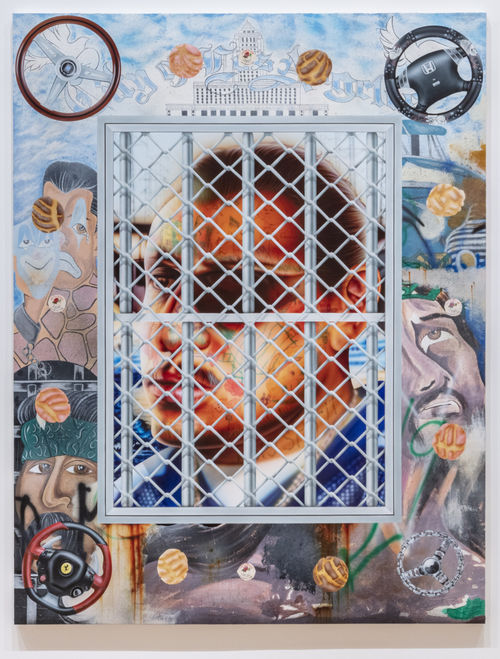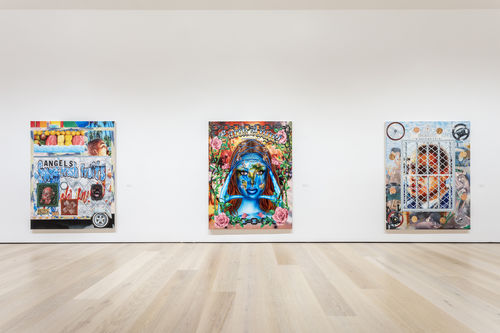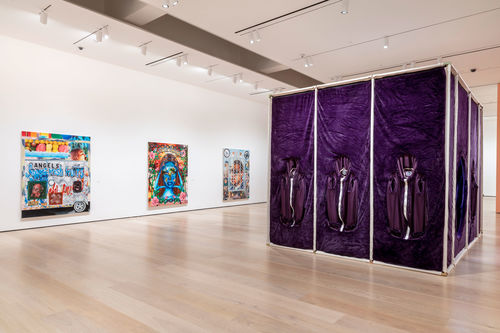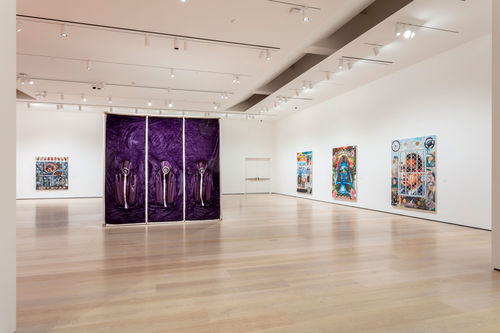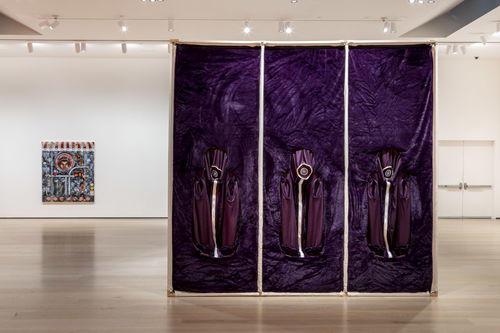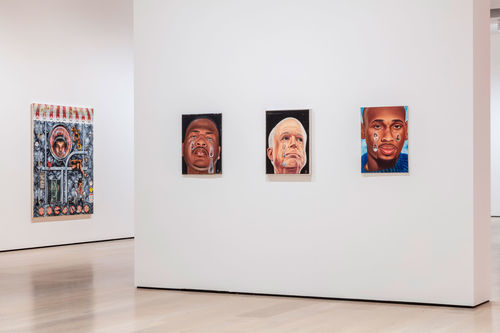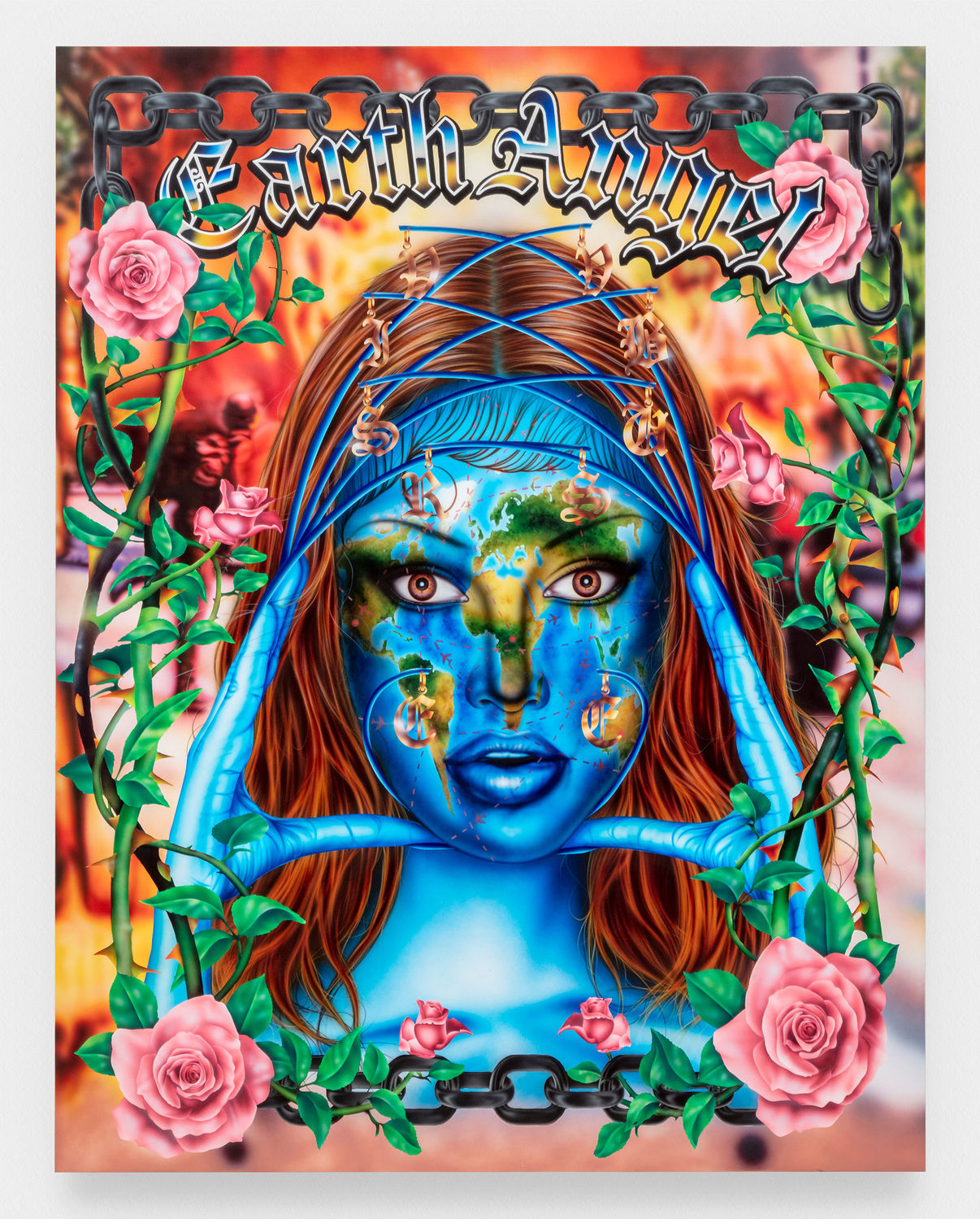
Mario Ayala
Mario Ayala, a Los Angeles native, paints in acrylic using an airbrush technique that borrows from car culture while creating a singular visual language in which elements contradict one another narratively and spatially. Championing California’s vernacular styles, his paintings and sculptural installations draw inspiration from hand-painted signage, tattoos, advertising, auto customization, and elements of lowrider aesthetics. Ayala pays particular attention to the material culture of Latinx identity—for example, commemorative T-shirts as outlets for public grieving.
Ayala’s recent work is informed by underground Chicano magazines such as Mi Vida Loca, Teen Angels, and the prison publications of San Francisco’s Doré Studio. For Made in L.A. 2020, Ayala delves into Teen Angels, which documented cholo culture in the late twentieth century. Known as the Voice of the Varrio, Teen Angels was the only publication at the time that featured artworks, poems, dedications, photographs, and essays penned exclusively by Chicanos, including those who were gang-affiliated or in prison.
Ayala’s airbrush acrylic paintings pay homage to the idiosyncratic artworks submitted to the magazine, particularly its iconic cover illustrations.
In Made in L.A. 2020: a version, the artist’s work is present in two institutions, across Los Angeles. See Mario Ayala's work on view at The Huntington.
BIOGRAPHY
Mario Ayala was born in 1991 in Los Angeles. He graduated from the San Francisco Art Institute in 2014 and attended the Skowhegan School of Painting and Sculpture the same year. Ayala paints in acrylic using an airbrush technique that borrows from car culture and lowrider aesthetics while creating a singular visual language in which elements contradict one another narratively and spatially. His combination of disparate iconography and aesthetic gestures reflects the variety of influences in his work, which include his father’s ballpoint pen illustrations, nineteenth-century German painters, and the surrealist compositions of Konrad Klapheck. His work quotes from California’s vernacular with hints of signage, advertising, tire-shop paintings, auto customization, and lowrider culture, recontextualized. It draws equally from pop culture, with a particular attention to mediums associated with the representation of Latinx identity—memorial T-shirts as outlets for public grieving, the codified language of tattoos. Part of Ayala’s practice is informed by underground archival Chicano publications and printed matter such as Mi Vida Loca, Teen Angel, and the prison publications of San Francisco’s Doré Studio, all of which featured poems, artworks, and essays that documented the Chicano experience of the 1980s and 1990s and promoted discourse among Latinx communities. Teen Angels in particular documented Cholo culture from the 1980s until the mid-2000s and was known as the Voice of the Varrio, the only publication at the time that featured the artworks, poems, dedications, photographs, and essays of Chicanos, particularly those who were gang-affiliated or in prison. Ayala’s work has been the subject of solo exhibitions at Marlborough Gallery, New York (2019); Stems Gallery, Brussels (2019); Ever Gold [Projects], San Francisco (2019, 2017); and Loyal Gallery, Stockholm (2018).



